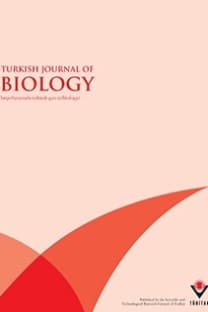Cryopreservation of citrus seed via dehydration followed by immersion in liquid nitrogen
An important method for plant germplasm conservation is offered by a biotechnology-based approach of cryopreservation. Cryopreservation refers to the storage of plant material at ultralow temperatures in liquid nitrogen. A procedure for cryopreservation of polyembryonic seeds was improved for selected citrus cultivars from Turkey. Seed dehydration was performed at different exposure times, in sterile conditions of a laminar flow-hood. The tested cultivars showed the highest tolerance to low temperature storage when the seeds were first dehydrated to a moisture content of 21.8% for Poncirus trifoliata Raf. x Citrus sinensis Osb. and to 17.6% for Citrus limonia Osbeck. The postcryopreservation germinability ranged from 73.3% (Poncirus trifoliata Raf. x C. sinensis Osb. and Fortunella margarita (Lour.) Swingle) to 93.3% (C. jambhiri Lush.). Dehydration was beneficial for germination of seeds from all of the tested citrus species after the liquid nitrogen exposure. Seedlings derived from cryopreserved seeds had well-formed shoots and roots and were easily acclimated to greenhouse conditions.
- ISSN: 1300-0152
- Yayın Aralığı: Yılda 6 Sayı
- Yayıncı: TÜBİTAK
Sayıdaki Diğer Makaleler
Betül Çelebi SALTIK, Beyza Gökçinar YAĞCI
Nizamettin ÖZDOĞAN, Nursen ÇORUH
Banu Şebnem ÖNDER, Pınar GÜLER, Nazlı AYHAN
Arzu Yilmaztepe ORAL, Haluk Barbaros ORAL, Mehmet SARIMAHMUT, Buse CEVATEMRE, Güven ÖZKAYA, Şeniz KORKMAZ, Engin ULUKAYA
GÜNEŞ DİNÇ AKBULUT, DİDEM ÖZKAZANÇ, GÜNEŞ ESENDAĞLI
Ahmet Tarık BAYKAL, Özge ÇEVİK, Azize ŞENER, Zelal ADIGÜZEL
Arzu ORAL YILMAZTEPE, Mehmet SARIMAHMUT, Engin ULUKAYA, Haluk Barbaros ORAL, Güven ÖZKAYA, Şeniz KORKMAZ, Buse CEVATEMRE
Th1 cells in cancer-associated inflammation
Güneş AKBULUT DİNÇ, Güneş ESENDAĞLI, Didem ÖZKAZANÇ
Ergun KAYA, Fernanda SOUZA, Emel Yilmaz GÖKDOĞAN, Muammer CEYLAN, Maria JENDEREK
